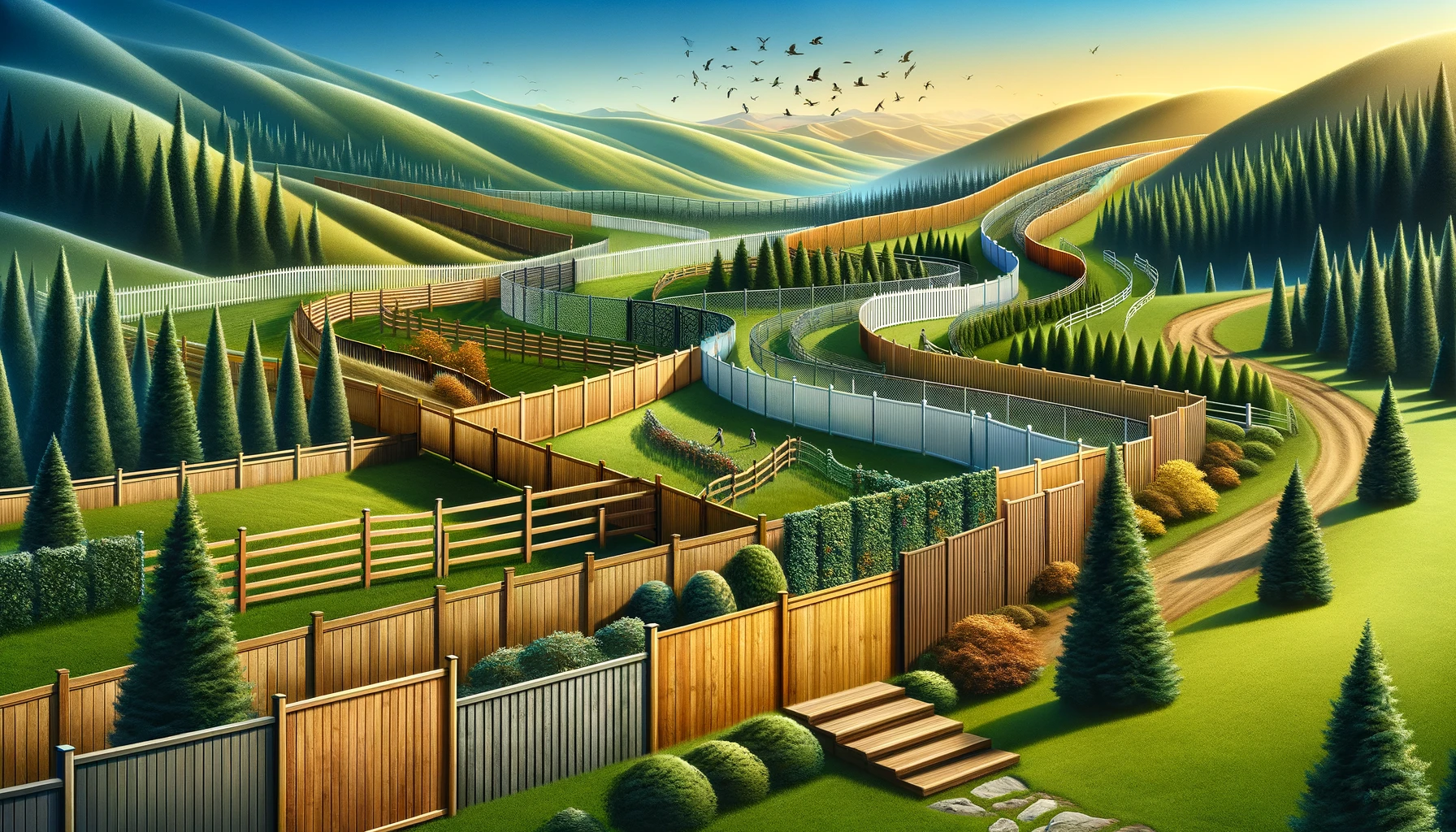
When it comes to selecting the perfect fence for your property, understanding the various options available is key to making an informed decision. Fencing can serve multiple purposes: from enhancing privacy and security to adding aesthetic appeal and increasing property value. However, the type of fencing you choose will depend on your specific needs, budget, and the level of installation difficulty you’re prepared to handle. In this guide, we’ll explore the different types of fencing available, assess the installation difficulty of each, and recommend what each fence type is best suited for.
Installation Difficulty: Moderate
Chain link fencing is one of the most cost-effective and quickest types to install. It’s ideal for those looking for a practical solution to mark boundaries or secure pets without obstructing views. While it’s relatively easy to install, some technical know-how is required, particularly in stretching the chain link and ensuring the posts are securely anchored.
Best For: Securing backyard areas, playgrounds, and industrial properties.
Installation Difficulty: High
Security fencing, which includes wrought iron and steel options, is designed to provide the highest level of security and durability. Installation is labor-intensive and may require professional help, especially for fences that come with advanced security features like anti-climb spikes.
Best For: Commercial properties, high-security areas, and residential properties seeking a high level of protection.
Installation Difficulty: High
Game fencing is specially designed to keep wildlife either in or out, depending on your needs. It’s commonly used on large tracts of land and requires a significant amount of material and labor to install, making it one of the more challenging and costly options.
Best For: Farms, ranches, and large estates.
Installation Difficulty: Moderate to High
Ranch fencing is tailored to the agricultural sector, usually consisting of wood or vinyl rails. While the basic installation is straightforward, covering large areas can be time-consuming and physically demanding.
Best For: Enclosing livestock or demarcating property boundaries in rural settings.
Installation Difficulty: Moderate
Design Master fencing combines aesthetic appeal with functionality and is relatively easy to install. It’s a versatile option that can be used for both security and decorative purposes, fitting well in both residential and commercial settings.
Best For: Businesses and homeowners looking for a balance between security and design.
Installation Difficulty: High
Iron fencing, especially wrought iron, is prized for its durability and ornamental design. Installation requires specific skills, particularly in welding and metalwork, making it a job usually best left to professionals.
Best For: Enhancing the aesthetic appeal and security of residential properties.
Installation Difficulty: Moderate
Privacy fencing, made from wood or vinyl, offers a high degree of seclusion and is relatively straightforward to install. Panels can be heavy and unwieldy, however, so having an extra pair of hands can be helpful.
Best For: Homeowners seeking privacy from neighbors or a quiet retreat in their backyard.
Installation Difficulty: Moderate
Barbed wire fencing is most commonly used in rural areas to contain livestock. While installation is not overly complex, handling barbed wire requires care and specific tools to tension the wire correctly.
Best For: Farms and large properties needing to contain animals or deter trespassers.
Installation Difficulty: Moderate to High
Fence arches add a decorative touch to gardens and pathways, often incorporated into existing fencing for aesthetic appeal. Installation complexity varies depending on the design and material but generally requires a moderate level of skill.
Best For: Garden enthusiasts looking to add a decorative element to their outdoor spaces.
Choosing the right fence for your property involves weighing factors such as purpose, budget, aesthetic preference, and installation difficulty. While some fencing types are more DIY-friendly, others may necessitate professional installation. Regardless of your choice, the right fence can significantly enhance your property’s function, appearance, and value.